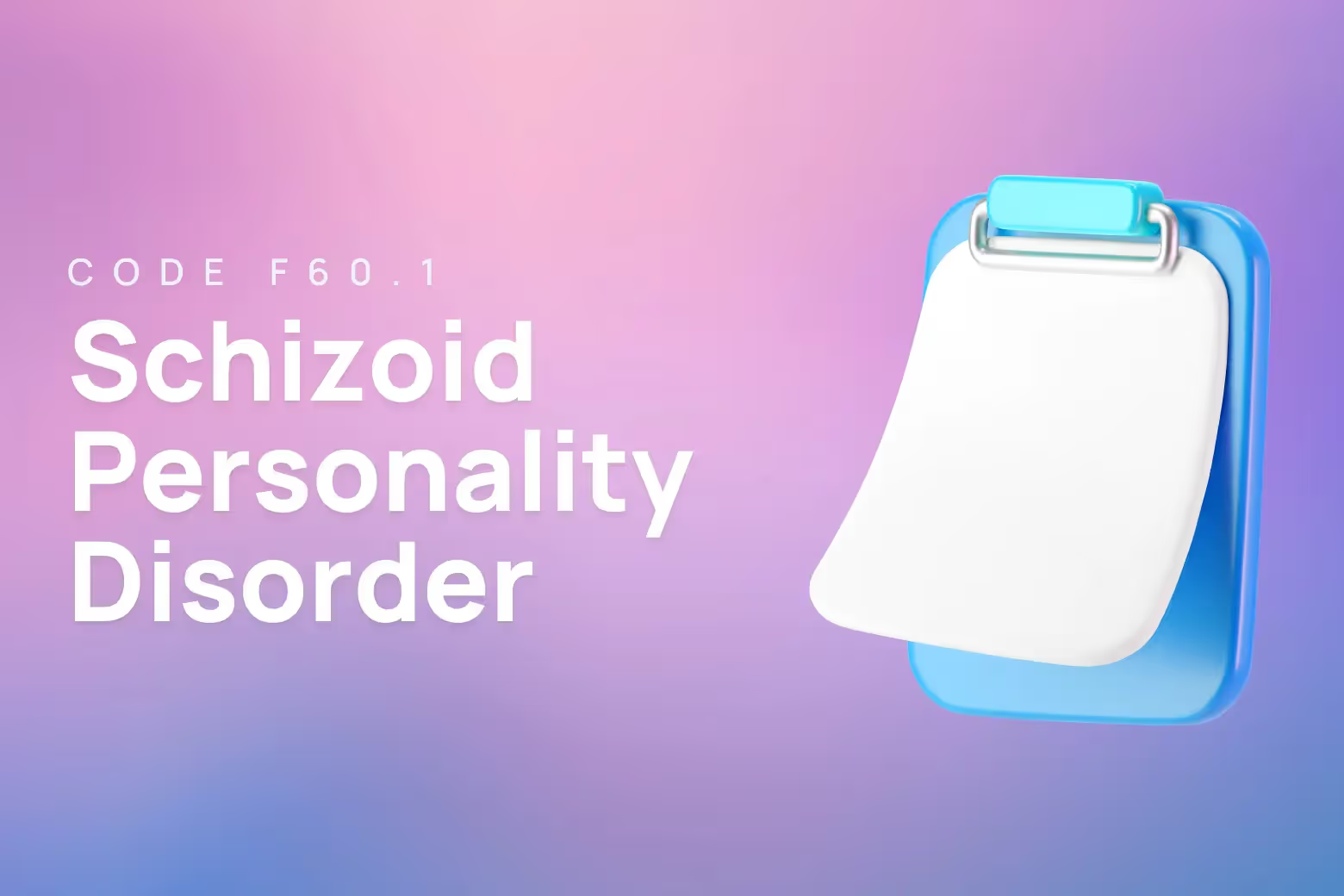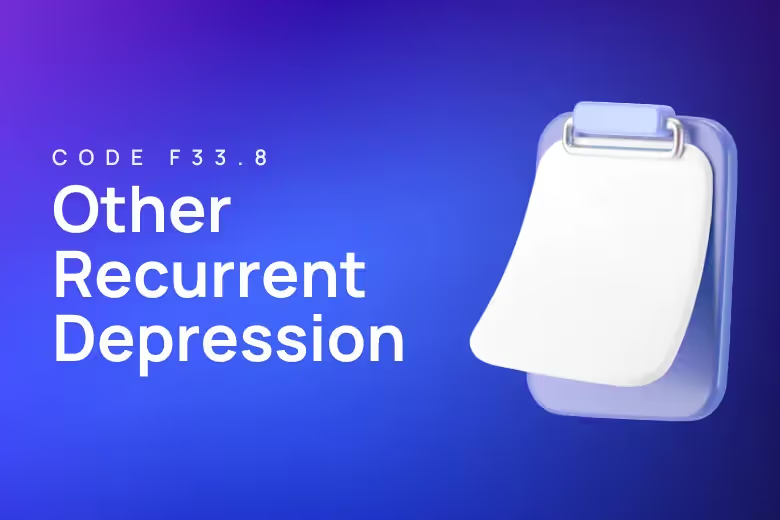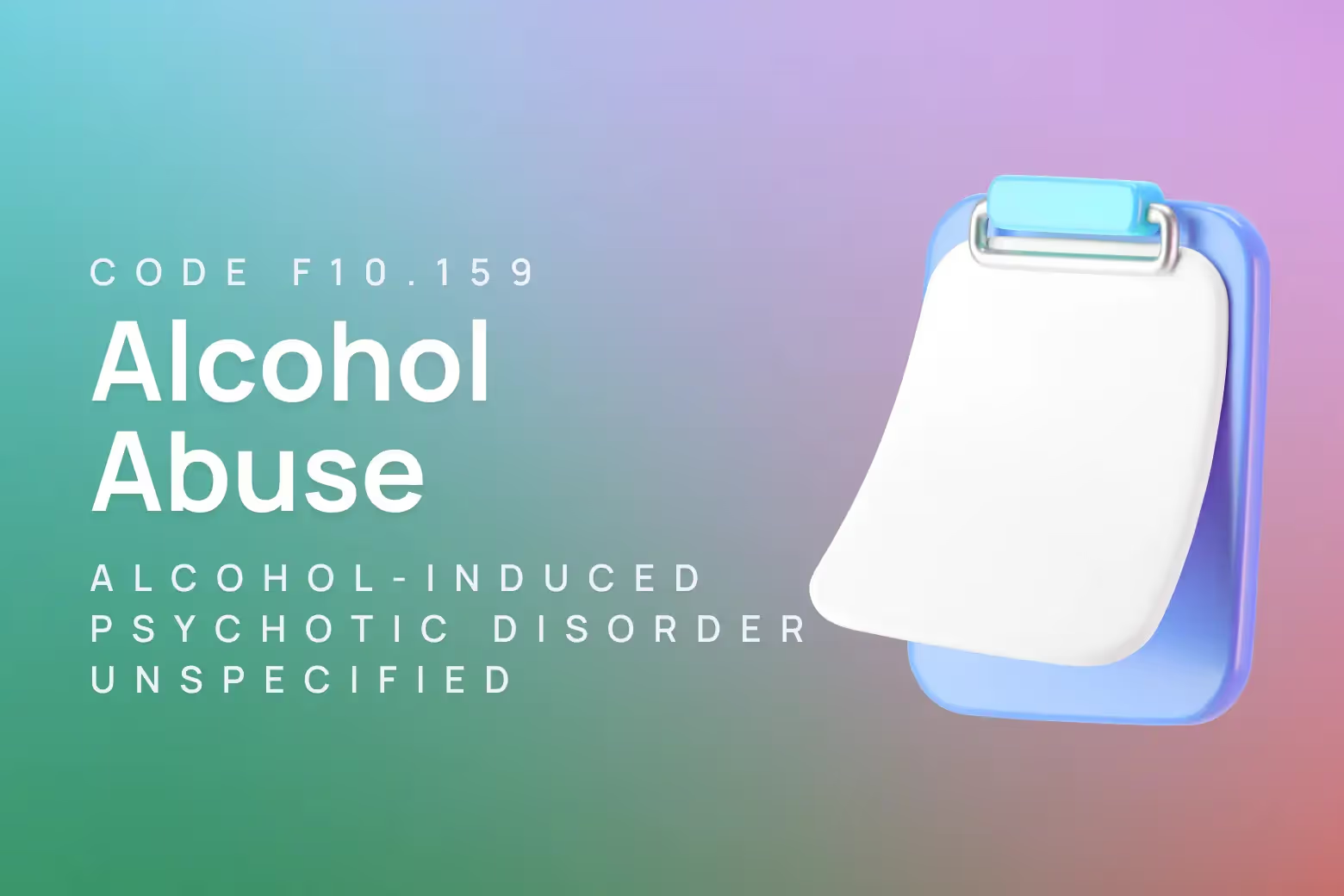ICD-10 code for schizoid personality disorder

Living with schizoid personality disorder (ScPD) means experiencing the world through a uniquely detached lens. Those with this condition often find themselves preferring solitude, showing limited emotional expression, and feeling little desire for close relationships. While this pattern of social detachment can create significant challenges in work and personal life, many individuals with ScPD can build meaningful lives while honoring their need for independence.
The ICD-10 code for schizoid personality disorder is F60.1. This code appears under the broader category of specific personality disorders (F60) alongside other Cluster A personality disorders like paranoid personality disorder (F60.0) and schizotypal disorder (F21).
Schizoid personality disorder is estimated to occur in less than 1% of the general population, with longitudinal studies finding its characteristics to remain quite stable into adulthood. According to the DSM-5, diagnostic criteria, schizoid personality disorder manifests as a pervasive pattern of detachment from social relationships and limited expression of emotions in interpersonal settings. The core features include neither desiring nor enjoying close relationships, almost always choosing solitary activities, having little interest in sexual experiences with others, taking pleasure in few activities, lacking close confidants other than immediate family, appearing indifferent to praise or criticism, and showing emotional coldness or flattened affect.
When to use F60.1 for schizoid personality disorder
Clinicians should use code F60.1 when a patient demonstrates a persistent pattern of social detachment and restricted emotional expression that begins by early adulthood and presents across multiple contexts. However, careful differential diagnosis is essential, as similar symptoms may appear in autism spectrum disorders, major depressive disorder, and other personality disorders. For accurate diagnosis and coding, the symptoms should not occur exclusively during episodes of schizophrenia or other psychotic disorders.
Schizoid personality disorder vs. schizotypal personality disorder
ScPD and schizotypal personality disorder share some genetic and environmental risk factors, but maintain distinct clinical presentations. While both conditions involve social difficulties, schizoid personality disorder (F60.1) is characterized primarily by detachment and limited emotional expression, whereas schizotypal personality disorder (F21) includes additional features like magical thinking, unusual perceptual experiences, and paranoid ideation. Individuals with ScPD typically maintain reality testing and do not experience the cognitive-perceptual distortions seen in schizotypal disorder.
Schizoid personality disorder vs. avoidant personality disorder
Although both disorders may lead to social isolation, individuals with avoidant personality disorder (F60.6) actively desire relationships but avoid them due to fears of rejection and criticism. In contrast, those with ScPD have limited interest in social relationships and feel no distress about their solitary lifestyle.
Other ICD-10 codes for personality disorders
- F60.0 Paranoid personality disorder
- F60.2 Antisocial personality disorder
- F60.3 Borderline personality disorder
- F60.4 Histrionic personality disorder
- F60.5 Obsessive-compulsive personality disorder
- F60.6 Avoidant personality disorder
- F60.7 Dependent personality disorder
Interventions and CPT codes for schizoid personality disorder
Treatment approaches for ScPD typically focus on improving social functioning and emotional expression while respecting the individual's need for autonomy. Psychotherapy can help patients develop coping strategies and maintain necessary social connections.
90834: Individual psychotherapy
Individual psychotherapy is a primary intervention for schizoid personality disorder. This service is billed under CPT code 90834 for 45-minute sessions.
For individuals with ScPD, psychotherapy focuses on gradually building therapeutic rapport while helping patients recognize and express emotions in safe ways. Treatment typically progresses slowly, respecting the client's need for emotional distance while gently challenging maladaptive patterns.
90847: Family psychotherapy
Family therapy can help address interpersonal dynamics and improve communication. This intervention is billed under CPT code 90847.
Family therapy may help educate family members about ScPD and develop strategies to support their loved one while respecting their need for space. Sessions often focus on finding balance between maintaining necessary family connections and honoring the individual's autonomy.
Supporting clients with schizoid personality disorder
While living with ScPD presents unique challenges, there is hope for improving quality of life while maintaining authentic self-expression. Mental health providers play a crucial role in helping these clients navigate necessary social interactions while respecting their need for independence. In today's complex healthcare environment, clinicians must balance providing empathetic, individualized care with maintaining detailed documentation that supports medical necessity and guides treatment planning.
Upheal is a powerful ally in this process, offering AI-powered clinical documentation tools that streamline administrative tasks while capturing the nuanced presentation of personality disorders. By reducing time spent on paperwork, Upheal allows providers to focus more energy on building the careful therapeutic alliance these clients need. Experience how Upheal can transform your practice workflow today.












